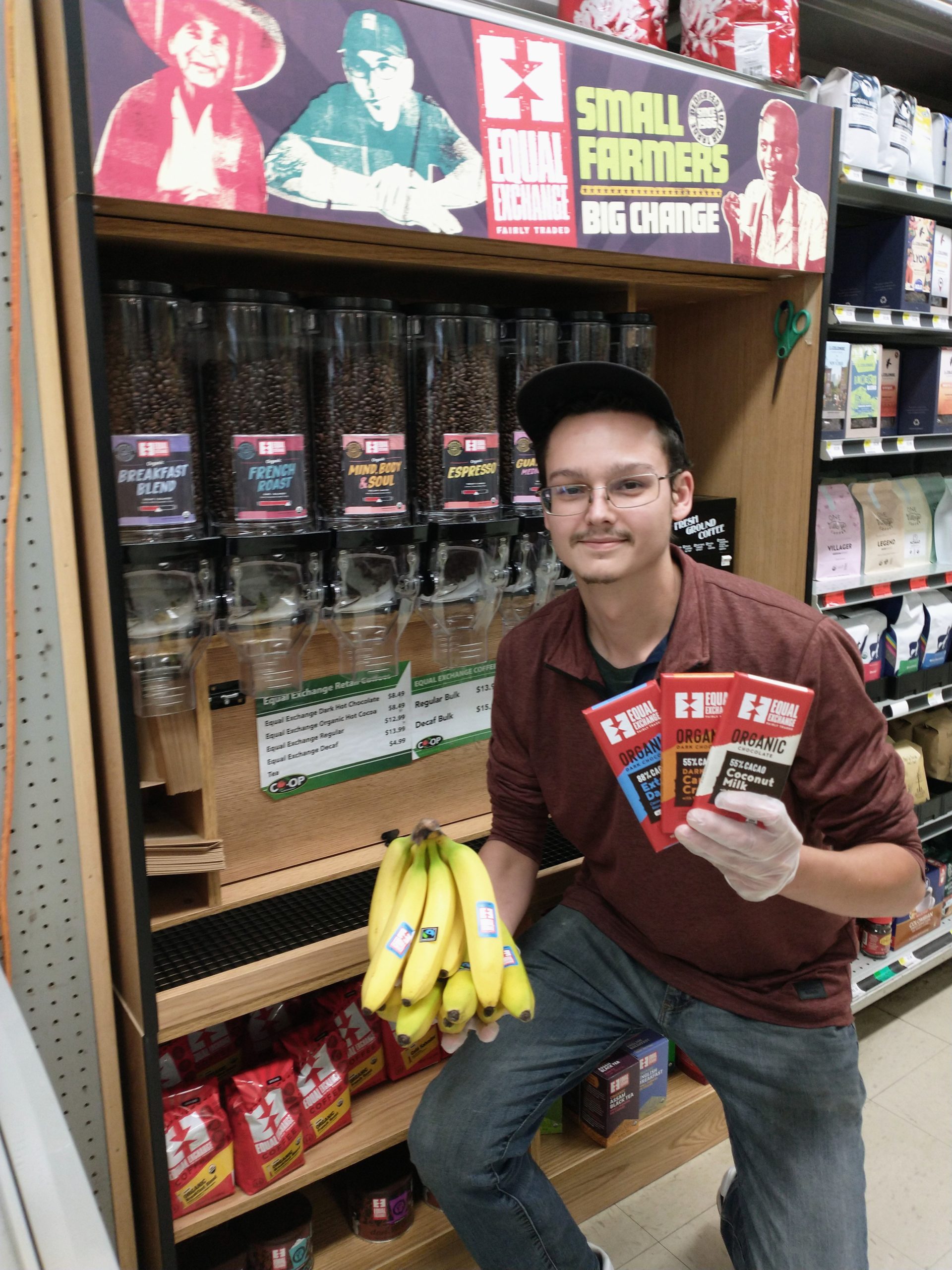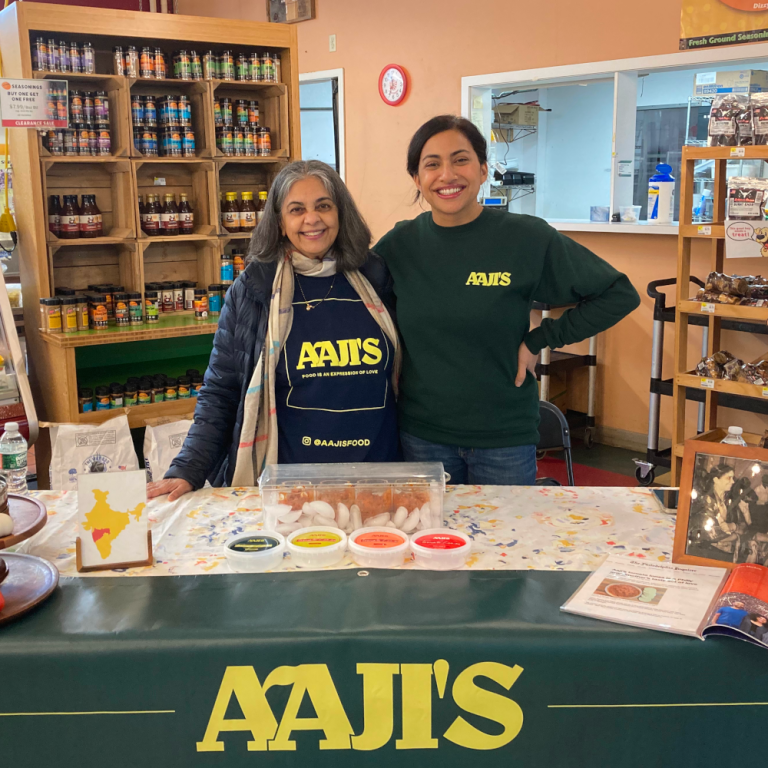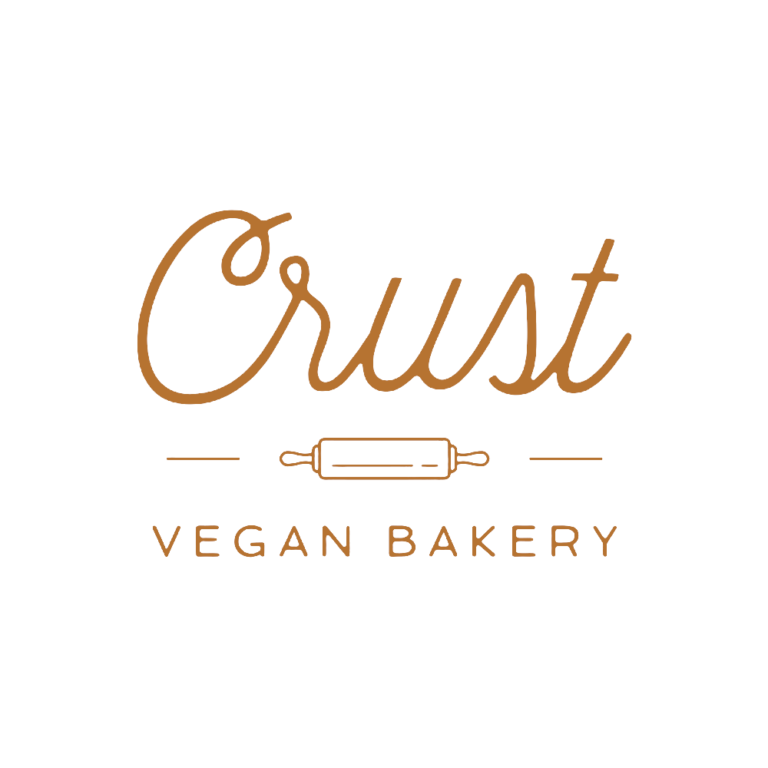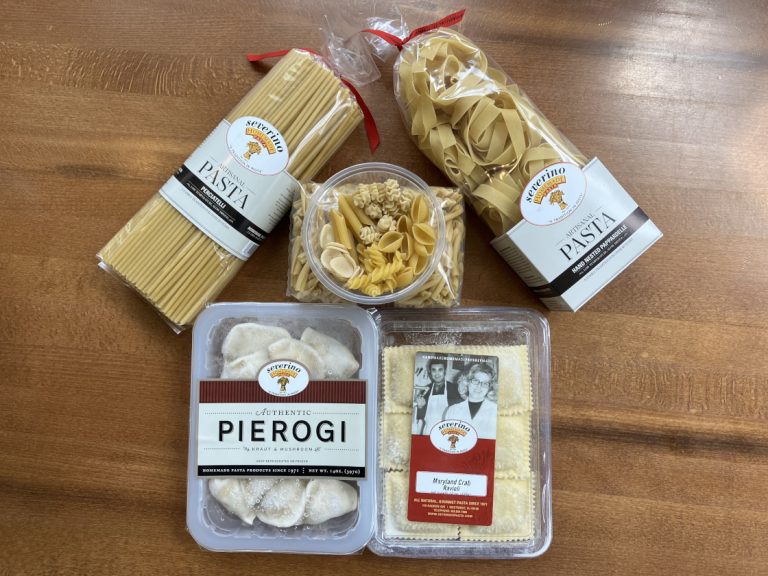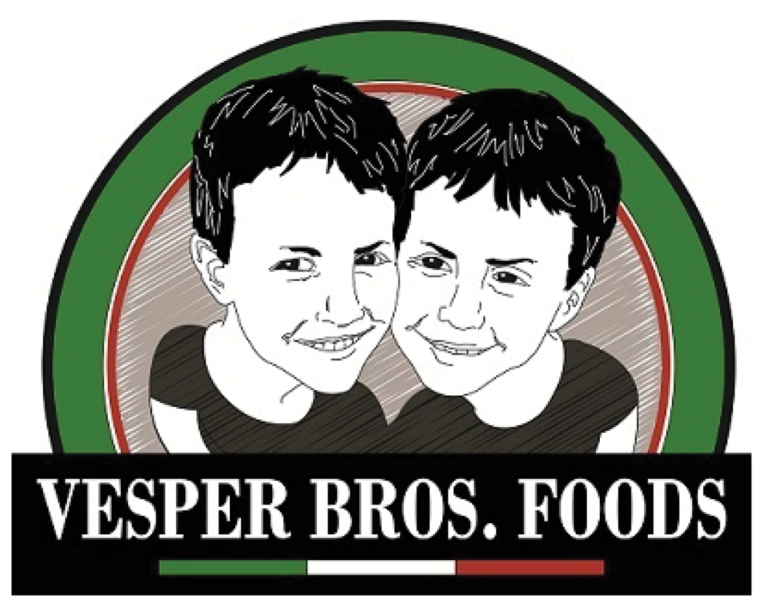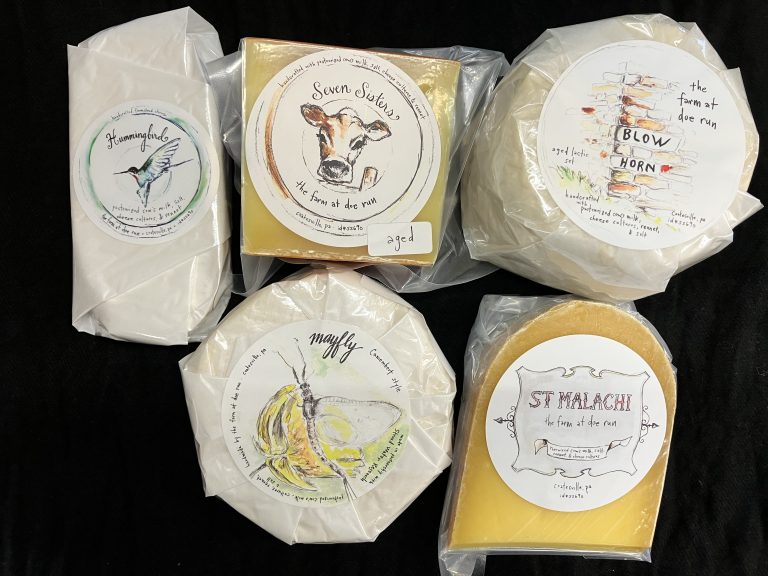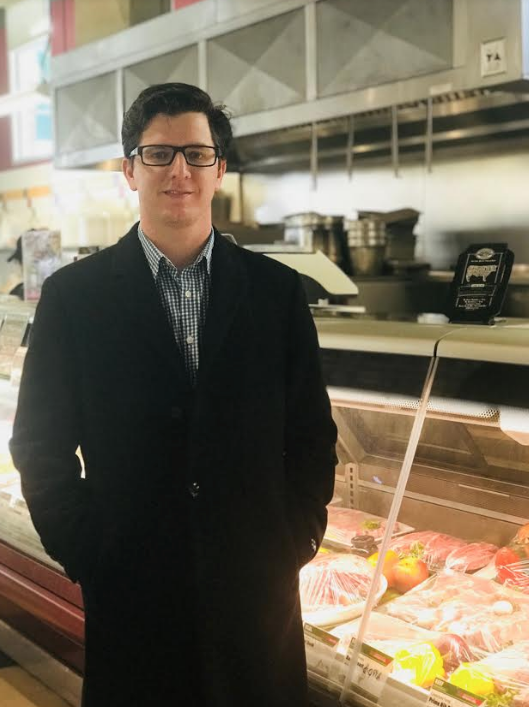Products and Services
Compared to our biggest vendors, Equal Exchange sells just a handful of products, but those specific, high-demand products have an outsize impact on social, economic, and environmental justice challenges in food production and trade. Equal Exchange sources these products from small producers and aims to build business partnerships that are mutually beneficial, economically just, and environmentally sound.
Equal Exchange works toward this mission by voluntarily adopting a fair trade business model, rather than a free trade business model. Fair trade aims to advance many economic, social, and environmental goals; in particular, fair trade practices aim to keep small farmers and worker-cooperatives relevant in the world marketplace and to create a more equitable, democratic, and sustainable world.
Here at the Swarthmore Co-Op we proudly carry Equal Exchange coffee, chocolate, cocoa mix, tea, and bananas.
History
Equal Exchange was founded in 1989, with three managers at a New England food Co-Op. They made the controversial decision to import coffee directly from small scale farmers in Nicaragua—despite the U.S. embargo at the time—and by paying the farmers directly rather than an intermediary, the farmers received more and Equal Exchange was still able to offer a competitive price in the U.S. market.
However, fair trade is not just the business model of Equal Exchange, but is a set of principles that a business can be certified in, just like businesses can be certified organic (for instance, you may have also heard of the chain Ten Thousand Villages, which also emphasizes a fair trade business model). Furthermore, there are deep international controversies within the fair trade movement about what should be considered “fair.”
Today, even in an industry dominated by huge plantations and businesses, Equal Exchange is a thriving model of fair trade that has exceeded the original vision. However, despite successful growth of an alternative trade market, most small-scale farmers remain impoverished and at the mercy of volatile and complex systems, receiving less than 1% of the value for what they produced.
Sustainability
The reality is that the cheap prices you’re accustomed to for conventional coffee, tea, chocolate, and bananas are driven by child labor, unsafe business practices, and unreasonably volatile prices for raw ingredients that tend to bankrupt small producers and enrich big businesses.
While “sustainability” often refers to ecological practices, Equal Exchange also shines a light on sustainable social and economic practices. In addition to eliminating dangerous pesticides and encouraging diverse farm ecosystems—sometimes with the label “organic,” and sometimes without—sustainability also means paying farmers a fair price so they can reinvest in their own communities, children getting educations, and emphasizing women’s leadership potential and power. By paying farmers directly, establishing price floors, promoting labor rights, and much else besides, Equal Exchange aims to transform our food system.
Those interested in learning more about Equal Exchange and fair trade in general are strongly encouraged to go to the company’s Resource Center at https://www.info.equalexchange.coop, where there are a multitude of articles, videos, and information about events.
About the Authors
Stephanie Bonner
Stephanie Bonner (she/her) graduated from Oberlin College with majors in Biology and English and a minor in Environmental Studies, with significant research experience in insects, particularly native bees. She completed a permaculture design course and worked for a range of companies including a nonprofit permaculture demonstration site, an organic vegetable CSA and wholesale farm as the CSA manager, and she has extensive experience as an editor and project manager in academic publishing. Stephanie is committed to sustainability, particularly regarding energy, transportation, waste, and agriculture.
Vlad Stefanovich
Vlad Stefanovich graduated from Penn State University with a BS in Agricultural Science as well as Minors in Plant Pathology and International Agriculture. He has passions for regenerative crop production techniques and soil conservation, curating fair local markets and resilient food economies, and developing long-term solutions for all aspects of food production. Vlad has dedicated himself to enhancing the Co-Op’s sustainability and also researching how our core vendors marry amazing food with sustainable practices. Vlad’s goal in these vendor profiles is to educate our customers on all aspects of sustainable food—from farm to table.
